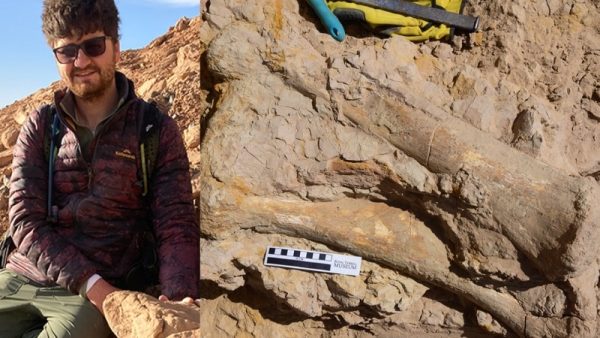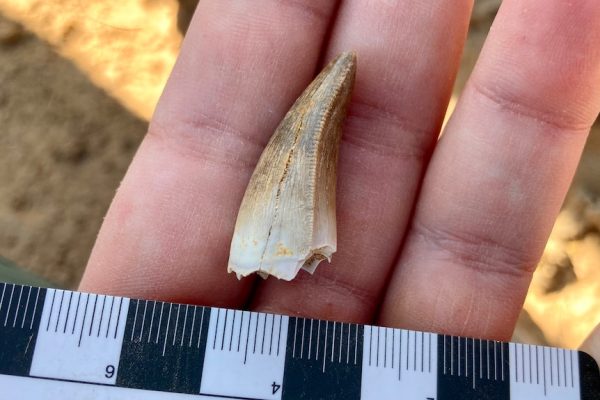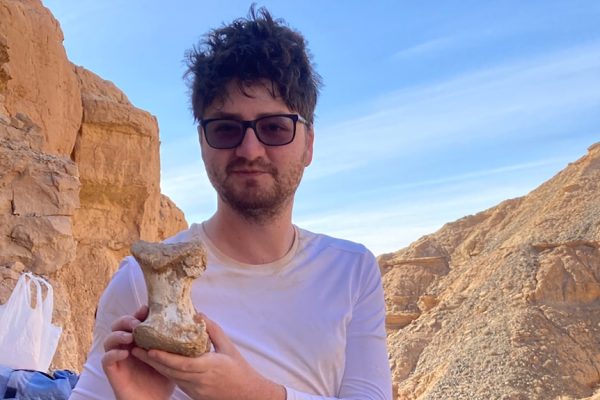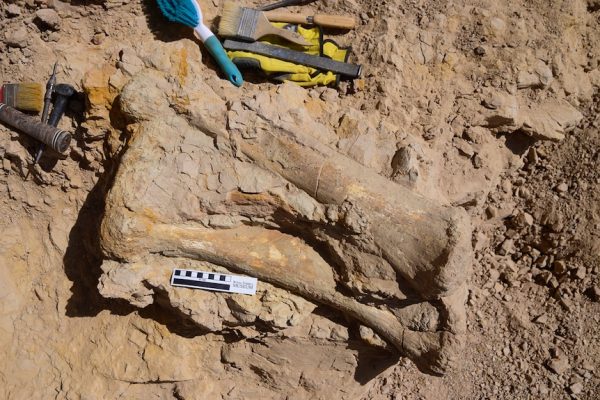In a remarkable collaboration between educational institutions and international paleontologists, a student from the University of New England (UNE) has made significant contributions to the excavation of a rare 70-million-year-old Nemegtosaurus skeleton in Mongolia.

This groundbreaking discovery not only provides insights into prehistoric life but also underscores the pivotal role that students can play in groundbreaking scientific research.
Part of an interdisciplinary team of researchers, the UNE student ventured to the Nemegt Basin in Mongolia, a region known for its abundant fossilized remains from the Late Cretaceous period. The primary objective was to unearth and analyze the remarkably well-preserved skeleton of a Nemegtosaurus, a dinosaur species that once roamed the Earth millions of years ago.

Engaged in every aspect of the excavation process, the student partook in delicate digging, precise bone extraction, and thorough documentation and cataloging of the findings. This hands-on involvement provided a unique opportunity for the student to actively contribute to a significant scientific endeavor while gaining invaluable experience in paleontological fieldwork.

The Nemegtosaurus, characterized by its long neck and herbivorous diet, has long intrigued paleontologists due to its limited fossil record. The discovery of this well-preserved specimen presents a rare opportunity to delve deeper into the anatomy and behavior of this species, further enriching our understanding of the ecosystems that thrived during the Late Cretaceous period.

The successful collaboration between UNE and international researchers serves as a powerful example of how academic partnerships can propel scientific knowledge forward. The participation of the student in this excavation not only highlights the importance of hands-on learning experiences in education but also underscores the significant potential for students to make meaningful contributions to pioneering research.

As word of the rare Nemegtosaurus discovery spreads, the student’s involvement stands as a testament to UNE’s commitment to providing students with immersive educational opportunities. The outcomes stemming from this excavation hold the promise of advancing paleontological knowledge and contributing to a more comprehensive comprehension of the ancient world, reflecting the dedication and contributions of an enthusiastic student researcher.